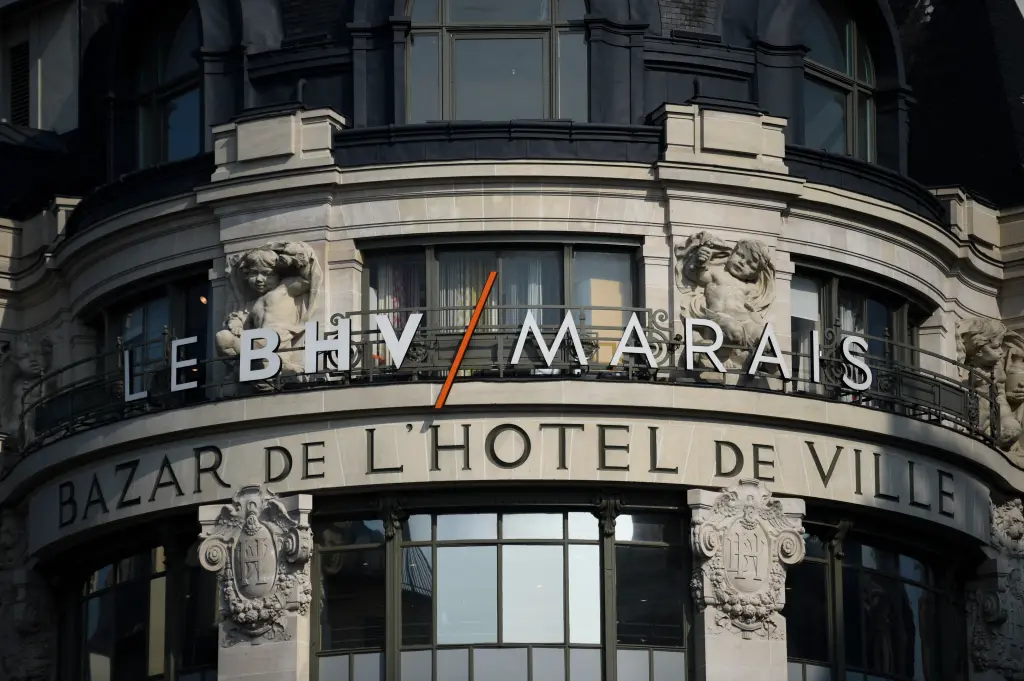Paris Up in Arms as Shein Opens First Physical Store in Historic BHV Marais
Chinese online fast-fashion giant Shein is stirring significant controversy as it prepares to open its first physical store in Paris on November 1st. The retailer will occupy the sixth floor of the iconic BHV Marais department store, a beloved Parisian shopping institution that has stood for nearly 170 years. This decision has provoked outrage across multiple segments of French society, from fashion enthusiasts to political leaders, including Paris Mayor Anne Hidalgo who publicly denounced the move on LinkedIn. The controversy stems from Shein’s reputation as a symbol of ultra-fast fashion with questionable labor and environmental practices, which many feel contradicts both France’s fashion heritage and BHV Marais’ long-standing commitment to quality and sustainability. The backlash has been so severe that BHV Marais has reportedly been expelled from France’s industry body for department stores, signaling how deeply this move has fractured relationships within the French retail community.
The opposition has manifested in various forms of protest and resistance. Last week, BHV Marais employees temporarily abandoned their posts to demonstrate outside the department store, waving labor union flags while union representatives and city officials delivered impassioned speeches against the partnership. One employee named Valerie expressed her dismay to France 24, highlighting how the store had previously been committed to “go-for-good policies” that promoted French-made and artisanal products. The sentiment was echoed by another employee who told the New York Times that “Shein goes against our beliefs” and contradicts the store’s tradition of featuring “beautiful brands” and promoting corporate social responsibility. The public has also mobilized, with a Change.org petition against Shein’s presence in BHV Marais gathering over 105,000 signatures, reflecting widespread concern about introducing a retailer known for mass production and low costs into a space historically dedicated to quality and craftsmanship.
The controversy has extended beyond protests to concrete business consequences, with several brands taking a stand by withdrawing their products from BHV Marais. Organic skin care lines Aime and Talm, vintage retailer Culture Vintage, and lingerie brand Le Slip Francais are among those who have announced plans to leave the department store in opposition to Shein’s arrival. Mathilde Lacombe, president of Aime, publicly challenged other brands to join the exodus on LinkedIn, stating, “Our collective choices are building the future of our industry.” Fashion editor Dana Thomas provided context to the uproar, explaining to France 24 that Shein represents the worst excesses of ultra-fast fashion, comparing it to “junk food” within the fashion industry. This characterization underscores the perceived clash between Shein’s business model—based on high volume, low quality, and rapid turnover—and the traditional French approach to fashion that values craftsmanship, durability, and style over disposable trends.
The timing of Shein’s brick-and-mortar expansion into France appears strategic and potentially calculated to circumvent recent regulatory measures. France recently introduced a law imposing a 10-euro charge per garment purchased online, a measure designed to address the environmental impact of fast fashion and encourage more sustainable consumption patterns. By establishing physical stores, Shein can potentially avoid these additional costs while maintaining its price advantage. This move comes shortly after France’s antitrust watchdog fined Shein 40 million euros for “unfair commercial practices” following an investigation into misleading discount advertising. Despite these regulatory challenges and public opposition, Shein reportedly plans to expand its physical presence beyond Paris to five other French cities—Dijon, Reims, Grenoble, Angers, and Limoges—suggesting a determined strategy to establish a foothold in the French market regardless of resistance.
Shein’s leadership has attempted to frame the Parisian store opening as a gesture of respect toward France’s fashion heritage. Executive Chairman Donald Tang claimed that by choosing France for its physical retail trial, Shein is “honoring its position as a key fashion capital and embracing its spirit of creativity and excellence.” The company further told Women’s Wear Daily that the “alliance is more than just a launch—it’s a commitment to revitalize city centers across France, restore department stores, and develop opportunities for French ready-to-wear.” These statements represent Shein’s efforts to reposition its entry into the French market as beneficial rather than harmful, suggesting the company seeks to integrate itself into the local fashion ecosystem rather than disrupt it. However, this narrative has failed to convince many stakeholders who view Shein’s business model as fundamentally at odds with French fashion values and sustainability goals.
The controversy surrounding Shein’s arrival at BHV Marais highlights broader tensions in the global fashion industry between traditional approaches to clothing production and consumption and the newer, faster, cheaper model that has gained prominence in recent decades. For many French citizens, the location of this conflict at a historic Parisian department store with views of the Eiffel Tower makes it particularly symbolic. The situation reflects growing concern about the social and environmental impacts of fast fashion worldwide, but with a distinctly French context that emphasizes cultural heritage and quality craftsmanship. As Shein prepares to open its doors on November 1st, the question remains whether this will represent the successful integration of a global retailer into the French market or serve as a catalyst for stronger resistance to fast fashion’s expansion. The outcome may have implications not just for Shein’s future in France but for how traditional fashion markets worldwide respond to the continued growth of ultra-fast fashion retailers.


